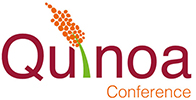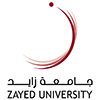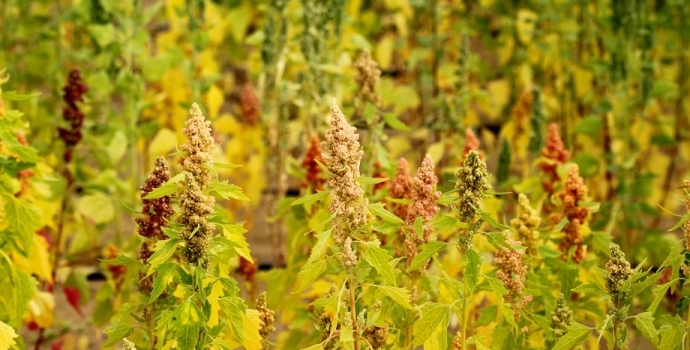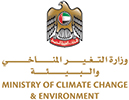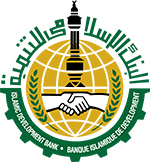Under the patronage of Her Excellency Sheikha Lubna bint Khalid Al Qasimi, Minister of State for Tolerance of the UAE and President of Zayed University

ICBA, Saudi Arabian university ink sponsorship deal for international quinoa conference
On May 23, 2016 the International Center for Biosaline Agriculture (ICBA) and King Abdullah University of Science and Technology (KAUST) signed a sponsorship agreement in Dubai, the UAE.
According to the agreement, KAUST will make a financial contribution towards the International Conference: Quinoa for Future Food and Nutrition Security in Marginal Environments, which will be jointly organized by ICBA and the Food and Agriculture Organization of the United Nations (FAO) on December 6-8, 2016 in Dubai.
Quinoa has taken center stage in recent years thanks to its unique qualities suited to meet global food and nutrition security challenges.
The global population is forecast to increase to 9.7 billion in 2050 and there are concerns about the capacity of agriculture to produce enough food for the growing population. By some estimates, food production will need to go up by about 60 percent either through increase in crop yields per unit area or expansion in the arable land by 2050 to meet the demand (World Population Prospects-the 2008 Revision, UN, 2009). Furthermore, several regions already suffering from malnutrition, water scarcity and soil degradation have been forecast to have a large population growth which raises serious concerns about whether traditional agricultural methods and crops species will have the capacity to sustain global food production targets.
As major cereal crops like wheat, rice, barley and corn are progressively failing to withstand increasing salinity and scarce water resources in marginal environments, quinoa has proven a good alternative to sustaining, and, possibly, increasing agricultural productivity in these areas.
However, there are still many challenges to introducing quinoa to areas where it can benefit people, especially farmers, most.
Recognizing the need to better understand and resolve these challenges and to fully exploit the potential of quinoa, ICBA and FAO will organize the Conference to provide a unique platform for discussions on ecological, economic and social aspects related to introducing quinoa for sustainable agricultural production in marginal environments.
The Conference will bring together leading scientists, practitioners and decision-makers from the public and private sectors in a mix conducive to innovation and technology transfer. It is hoped that the Conference will give a renewed impetus to research and development on quinoa in marginal environments, and create opportunities for collaboration between the public and private sectors.
